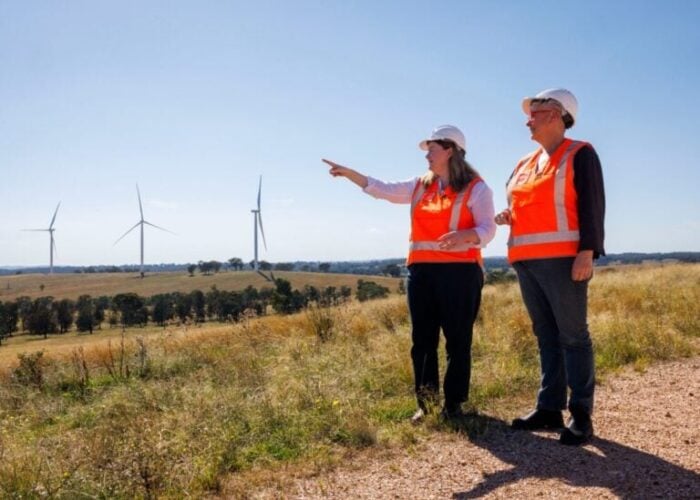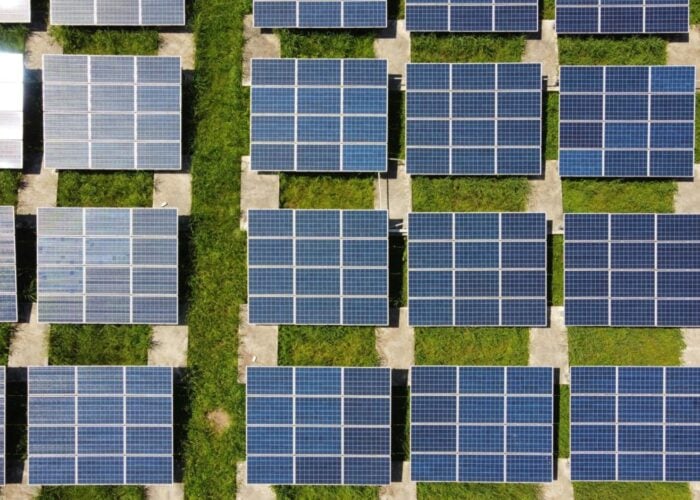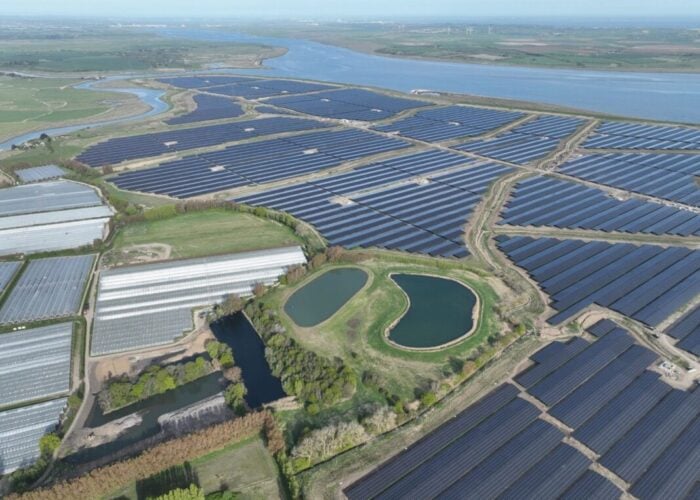A 6MW test facility for renewable energy storage technologies has been approved in the UK.
The Smarter Network Storage (SNS) in Leighton Buzzard is said to be the largest of its kind in Europe.
Unlock unlimited access for 12 whole months of distinctive global analysis
Photovoltaics International is now included.
- Regular insight and analysis of the industry’s biggest developments
- In-depth interviews with the industry’s leading figures
- Unlimited digital access to the PV Tech Power journal catalogue
- Unlimited digital access to the Photovoltaics International journal catalogue
- Access to more than 1,000 technical papers
- Discounts on Solar Media’s portfolio of events, in-person and virtual
The project summary says challenges in optimising the full potential of storage and a lack of large-scale demonstration projects are delaying the uptake of effective energy storage, which would allow for more renewable energy to be used on the grid.
Installing and manufacturing the 6MW lithium-ion battery is manufacturer S&C Electric Europe, Samsung SDI and renewable energy systems specialist Younicos.
Press spokesperson at Younicos, Philip Hiersemenzel, said Younicos was excited to contribute its intelligence to the new project, as its stimulations had shown 60-70% of renewable energy can be added to the grid using effective storage.
“In any power system you need to meet demand – with renewables you need to compensate for fluctuations […] the difference is currently made up by fossil fuels and thermal generators, the generators are always on so they can provide a minimum; the challenge in integrating renewables is switching off these generators,” he said
Hiersemenzel explained that large battery projects like the Leighton Buzzard project could save on traditional grid reinforcement methods such as transformers, cables and power lines. New storage technology could save £8.6 million in traditional grid back-up methods, he said.
Tested methods, once successful, are predicted to save £700 million overall in the UK, by 2040; the trials will also provide research on new business models for network operators.
The project will be a four-year demonstration, focusing on power frequency regulation and designed to demonstratie renewables’ ability to generate consistent energy, and meet current demand. It is hoped the SNS project will subsequently attract investors in energy storage.
Hiersemenzel continued that as most power is consumed in the day, dependable storage was needed to ensure renewable energy sources are able to meet current energy demands.
“The UK is putting its money where its mouth is and de-carbonising, we need storage: the problem is there are not enough reference projects, the first battery connected (1.2MW) was a test facility where we have demonstrated frequency regulation, and we have another 5MW commerical project in north Germany, but the problem is always the same: you need about ten projects to reach an industry standard, then, storage will take off by itself. Once people see this working it will attract financial investment, it’s so important the UK is committed, the UK is extremely laudable – renewables can take over.”
Clemens Triebel, founder of Younicos, said after the 5MW commercial project opened in Germany this April: “If we are serious about transitioning to renewable energy we have to be able to switch off fossil plants at times when wind and solar energy produce sufficient power. High-power storage systems are the key to that.”
“They also leverage the use of renewables: to achieve the same grid stability, every installed megawatt of battery storage can replace ten MWs of conventional generation, providing space in the grids for wind and solar power.”
Steven Jones, sales director for S&C Electric Europe, said he hoped the project would advance worldwide energy storage technology for grid support and aid renewable energies by freeing up grid space. Jones said the technology learnt at Leighton would be applied globally.
Distribution network operator (DNO) for the SNS project, UK Power Networks – which distributes 27% of UK’s electricity – was awarded £13.2 million of funding from regulator Ofgem’s Low Carbon Networks Fund (LCN Fund) for the project in November 2012 and received planning permission for the SNS centre last month.
Nick Heyward, UK Power Networks’ project director for SNS, said the centre would “provide a leading test bed for exploring the capabilities and economics of high-voltage energy storage, which is very useful for the industry.”
Nigel Brandon, director of the energy futures lab at Imperial College London, who produced a report on the value of energy storage systems in the UK said: “Storage reduces costs for the UK by providing a replacement plan for future low carbon systems, which are currently based on intermittent output – with storage options solar doesn’t have to come off-grid to use energy when the sun isn’t shining, it would decrease the whole cost of a system used to receive energy. It saves investment costs as not as much is needed for grid reinforcement to manage the peaks and troughs of solar energy.”







